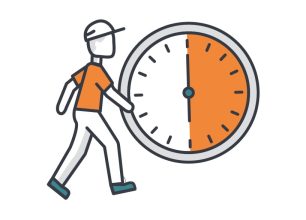While your weight may change slightly on a weekly and even daily basis, you are most likely to find your true weight by stepping on the scale first thing in the morning. Below, we discuss what causes weight fluctuations and some best practices on how to obtain a more accurate weight reading.
What is my true weight?
It’s normal for your weight to fluctuate day-to-day and even hour-to-hour for a variety of reasons. These can include:
- Increased water retention
- Hormonal changes
- Medication side-effects
- Increased sodium or carbohydrate intake
- And more…
In fact, the average adult’s body weight can fluctuate up to 4.4 pounds over the course of several days. That’s why it’s important to be consistent about weighing yourself to minimize the effects of these fluctuations.
That said, you are mostly likely to get your “true” weight first thing in the morning when you wake up and after you use the restroom. It’s also important to wear minimal or no clothing to get a more accurate reading.
In addition to weighing yourself consistently every morning, you can also incorporate other body measurements into your routine to help paint a fuller picture of your weight loss journey. These measurements include:
- Body Mass Index (BMI)
- Waist Circumference
- Body Fat Percentage
For more information and helpful tips on weighing yourself, be sure to check out the following articles:
- Why Should you Weigh Yourself Daily?
- 3 Tips to Help you Weigh-in Daily
- Weigh Yourself the Same Way Each Day.
Don’t forget that there are a variety of other healthy lifestyle choices that are equally as important to practice to be your healthiest self. If at any time you are struggling to weigh yourself daily, or it is causing you undue stress, be sure to talk to your care coordinator for support.
Published on January 25, 2023

